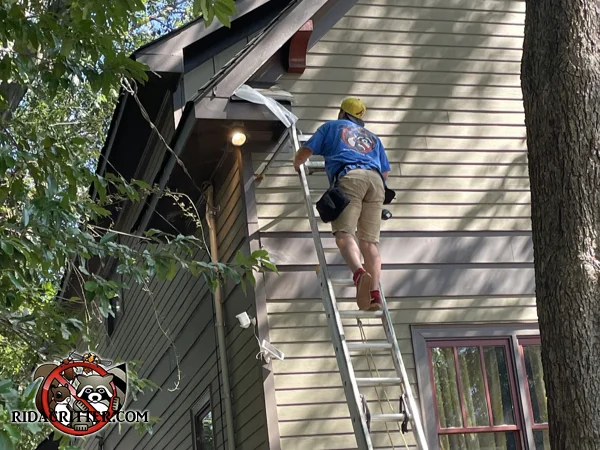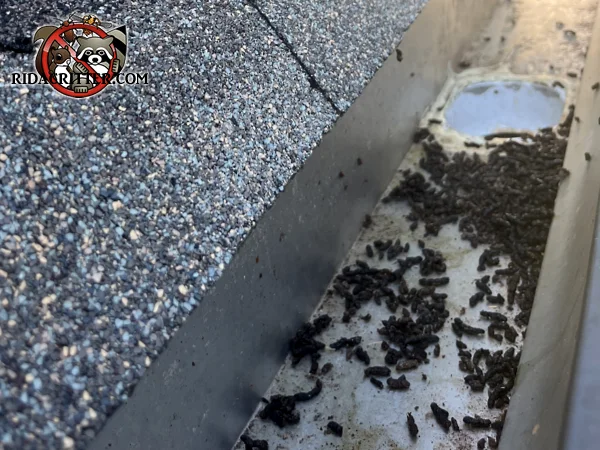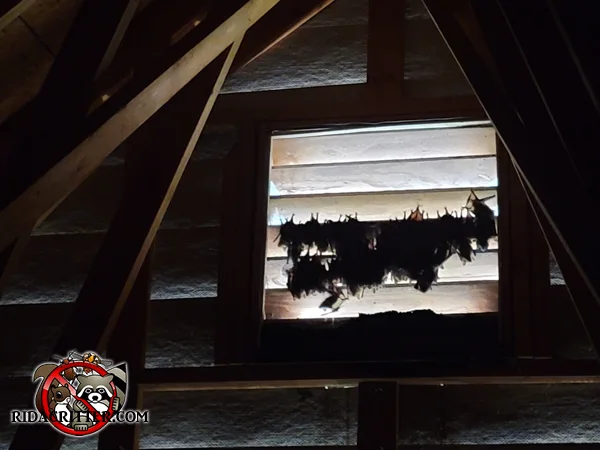
Bat Removal
Humane Bat Removal and Exclusion Services
Cooler weather might persuade bats to take up residence in your warm and cozy attic or within wall voids. You might hear sounds of activity coming from within your walls or your attic — especially at dawn or dusk when these nocturnal mammals are most active. You might even spot bats when they enter or exit your attic.

Bats are not great housemates, as they pose health threats to you and your loved ones. Here’s why:
-
- Bat droppings, called guano, contain harmful pathogens. Guano also serves as a breeding medium for insects and fungi.
-
- Bats carry parasites like fleas, ticks and bat bugs.
-
- Bats are the leading cause of human rabies.

Encourage bats to find another home with expert bat removal and exclusion services and safeguard your health. Rid-A-Critter offers humane bat control services in Alabama and Georgia. We provide a responsible solution to wildlife infestations as our services are environmentally friendly.
Professional Bat Removal and Exclusion in Georgia and Alabama
At Rid-A-Critter, we don’t believe in quick-fix solutions. If we remove bats from your home, but entry points still exist, more are sure to come. That’s why we only offer comprehensive home bat removal and exclusion services that prioritize fixing the root of the issue. The cost of all our services include:
Bat Removal
Equipped with knowledge of local wildlife laws and the breeding cycles of bats, our team will remove your unwanted houseguests at the right time to avoid disrupting a maternal colony. We won’t kill your guests. Although bats may harm your health, they play an essential role in pollinating plants and pest control. Our removal services for bats in your attic or elsewhere on your property make these mammals find a new home with minimal disruptions to their activities.
Sanitation and Repairs
Rid-A-Critter is committed to offering services beyond wildlife removal. Our comprehensive services also address the aftermath of an invasion. Because guano poses health risks, we’ll thoroughly clean and sanitize the affected area so you can breathe easily, knowing your home is bat by-product free.
Bats might also cause structural damage to your home by squeezing through small openings, and leaving their guano droppings to contaminate your walls or insulation. Our team combines skilled craftsmanship with expert restoration knowledge to efficiently repair any damage caused by bats. Quoted separately, we can also replace contaminated insulation if needed.
Exclusion
So bats don’t move in again, our team meticulously seals all entry points with durable material. We take our time to close every crack and opening correctly. This deters future bats and other wildlife from calling your house their home.
Note: We don’t offer these services as a stand alone. We really do believe in addressing the root cause of all infestations so we can prioritize you and your family’s wellbeing and prevent structural home damage.
Book Bat Control Services in Georgia and Alabama
Whether you need bat control services in Atlanta, Georgia and surrounding areas, or want to seal out critters in your Alabama home, rely on us to safeguard your health and property from a bat infestation. Because our team is multi-skilled, we can offer you expert and humane bat removal services and professional repair work — we are your one-stop solution for bat problems.

Rid-A-Critter has been responsibly removing wildlife since 2001. We’ve helped many homeowners like yourself and boast stellar results. If you have unwelcome bat guests, request an online quote today. For more information about our services, feel free to contact us online.
